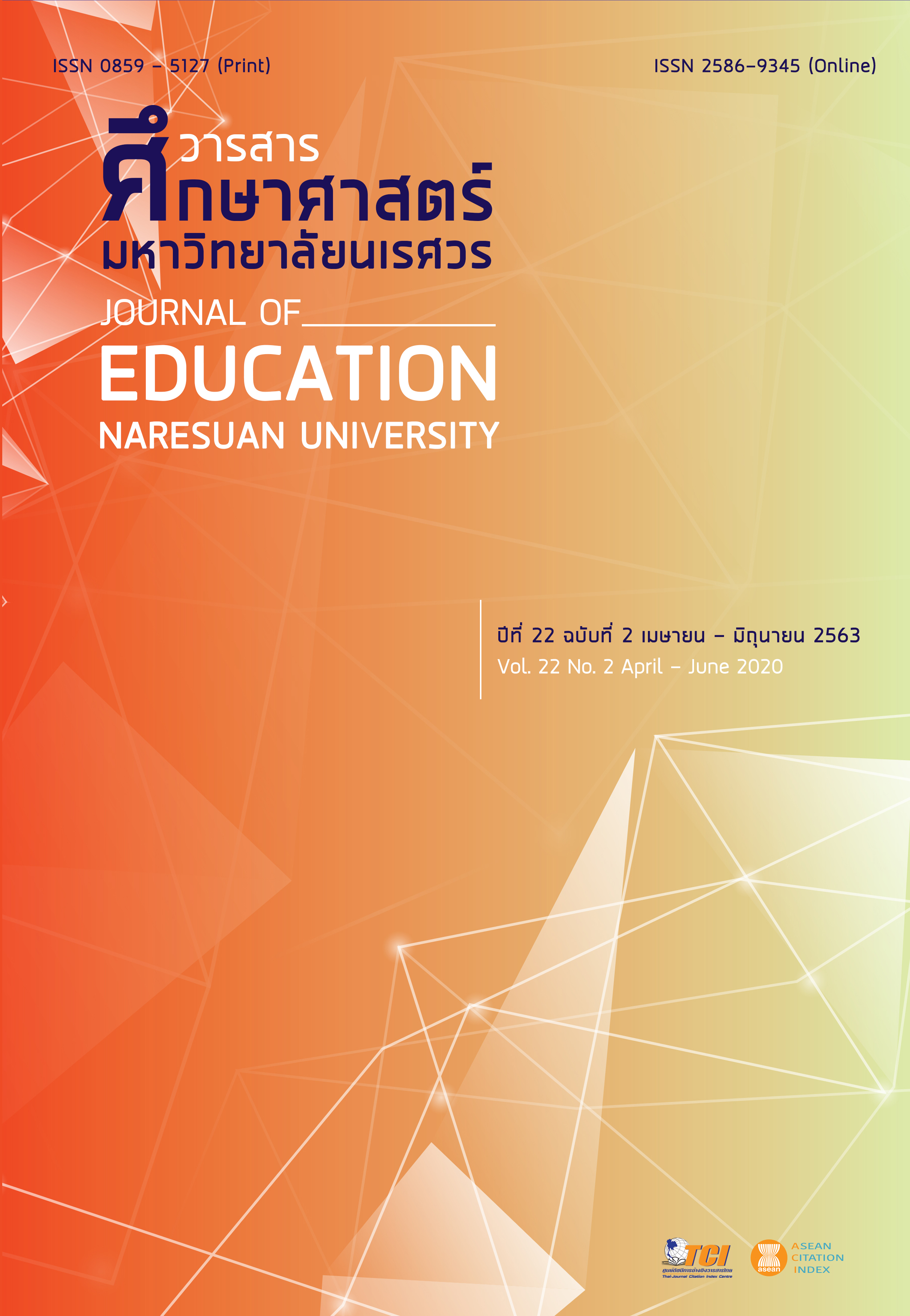THE PROBLEM-BASED LEARNING APPROACH TO DEVELOP GRADE 10th STUDENTS’ COMMUNICATION SKILLS AND GROUP WORKING SKILLS IN THE TOPIC OF BASIC CHEMICALS FOR ORGANISMS
Main Article Content
Abstract
The objective of this research was to reveal the process of problem-based learning approach to develop grade 10 students’ communicative skills and group work skills in topic of basic chemicals for organisms. This study was classroom action research. Instrument used in this research included three learning management plans responded to that process of the problem-based learning. Also, this study used reflect journal, observations on communication skills and group work skills and learning tasks. Data analyses were content analysis and data creditability by method triangulation. Results showed that most students had good level on group work skills. Students learn to improve their group work skills. There was a division of duties among members in each group. They appeared responsibilities and enthusiasm for their work. This research also found that most students had and medium level on communication skills. This might be because the learning activities undertaken by the researcher in the learning did not have enough encourage student to have the opportunity to communicate and exchange information as hoped. Thus, this research recommended that the learning management should concern on problem determination process by supporting students to understand the problem situation before sharing the problems, and learning management activities should induce an activity in which all members of the group could play a role in providing feedback, encouraging other students to develop their communication skills to reach higher levels.
Article Details
The owner of the article does not copy or violate any of its copyright. If any copyright infringement occurs or prosecution, in any case, the Editorial Board is not involved in all the rights to the owner of the article to be performed.
References
Kijkuakul, S. (2014). Instruction for science: A guide for the 21st century. Phetchabun: Juldis Printing. [in Thai]
Panit, W. (2012). Learning for 21st century students. Bangkok: Sodsri – Saritwong Foundation. [in Thai]
Phonphok, Y. (2011). Biology vocabulary. Bangkok: Science Center. [in Thai]
Sangkachan, A. (2010). The effective learning process taking students the center in logic 419111. Humanities & Social Sciences, 19(4), 35-44. [in Thai]
Sintananon, S. (2015). Learning the teachers to develop 21th century skills. Bangkok: 9119 Technic Printing. [in Thai]
Srimongkon, S. (2014). Promoting 21th century skills: communication and collaboration skill in the science classroom on cell and its component by simulation techniques (Master thesis). Khon Kaen: Khon Kaen University. [in Thai]
Suwannoi, P. (2012). Problem–based learning: Higher education. Khon Kaen: Institute for Human Resource Development, Khon Kaen University. [in Thai]
Vekli, G. S., & Cimer, A. (2012). Designing computer assisted problem based learning environment in the subject of endocrine system in human beings for high school biology (Master thesis). Black Sea: Technical University.
Viphatphumiprathes, T. (2014). Effects of research-based learning on undergraduate students’ knowledge of Aasen culture. Journal of Education Naresuan University, 16(2), 55-56. [in Thai]

